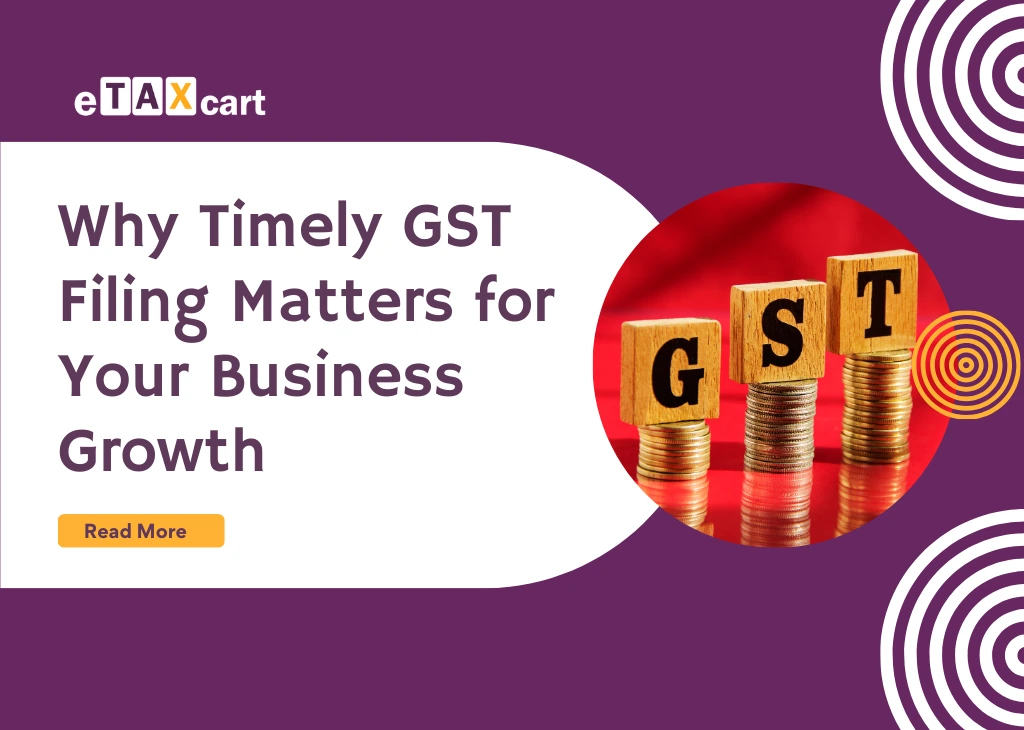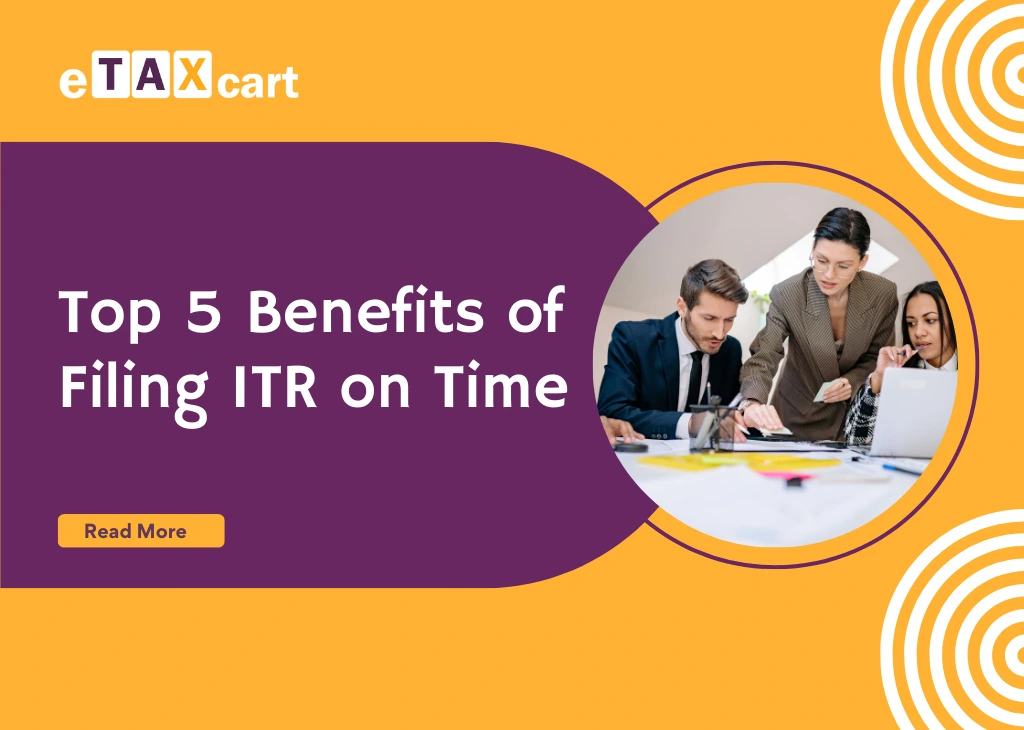
What is One Person Company?
If you’re an entrepreneur or a sole proprietor looking to take your business to the next level, registering as a One Person Company (OPC) can offer a unique set of benefits. OPC Registration in India opens up new business opportunities for individuals who wish to enjoy the advantages of limited liability while maintaining full control over their business. With this structure, you don’t need to worry about finding a partner to start your business—an OPC allows a single person to act as the sole member, shareholder, and director. This eliminates the hassle of having to share decision-making power and ensures that you can run your business the way you envision it.
One of the most appealing aspects of an OPC is the limited liability protection it offers. As the owner of the company, your personal assets will be shielded from any liabilities or debts the business might incur. This is a significant advantage over a sole proprietorship, where the owner’s personal assets are at risk in case of business failure. By registering as an OPC, you get the legal protection typically associated with private limited companies, but with the added convenience of being the sole decision-maker.
In addition to limited liability, an OPC is recognized as a separate legal entity. This means that your business will have its own legal identity, distinct from your personal one, making it easier to enter into contracts, raise capital, and engage in business transactions. It also enhances the credibility of your business in the eyes of clients, investors, and financial institutions.
One of the key advantages of OPCs is the reduced compliance burden. Compared to private or public limited companies, OPCs have fewer regulatory requirements, which makes managing the business easier and more affordable. This simplified structure is ideal for small businesses and startups that want the benefits of a formal business structure but without the complexities of more traditional company types.
As a potential customer, if you’re looking for a simple yet effective way to protect your personal assets, enjoy the flexibility of running your business independently, and gain the credibility of a registered company, an OPC is the way to go.
Our expert OPC registration service ensures that the entire process—from choosing your company name to submitting the required documents—is handled efficiently and in compliance with all legal standards. Let us help you navigate the OPC registration process and set you up for success, so you can focus on growing your business with confidence.

Advantages of One Person Company
At eTaxCart, our mission is to make tax and compliance stress-free — so you can focus on growing your career, your business, or your next big idea.

Single Ownership and Control
An OPC allows a single individual to own and control the entire business, providing full autonomy in decision-making without the need for partners or co-owners. This results in a faster decision-making process and clear direction for the business.

Limited Liability
One of the key benefits of an OPC is the limited liability protection it offers to the owner. The personal assets of the owner are protected in case of business debts or legal issues, ensuring that the risk is limited to the capital invested in the company.

Separate Legal Entity
An OPC is recognized as a separate legal entity, meaning it can enter into contracts, own property, and incur liabilities in its own name, distinct from the personal affairs of the owner. This enhances credibility and trust with customers, suppliers, and investors.

Easy Compliance
The regulatory framework for OPCs is simpler and less cumbersome than that of private limited companies. It enjoys relaxed compliance requirements, making it a cost-effective option for small businesses and startups.

Tax Benefits
OPCs may benefit from certain tax exemptions and deductions under relevant provisions of the tax laws, which can help optimize business expenses and reduce tax burdens.

Better Credibility
Due to its legal status as a separate entity, an OPC enjoys better credibility with banks, suppliers, and customers, compared to sole proprietorships. This can help in building trust and securing contracts with larger clients.

Continuity of Business
Since an OPC is a separate legal entity, it has a perpetual existence, regardless of changes in the ownership or management. This ensures the continuity of business even in the case of the owner’s death or incapacity, with the nomination of a nominee director.

No Minimum Capital Requirement
Unlike private limited companies, OPCs are not required to maintain a minimum capital requirement, which makes it an affordable option for those starting with limited funds.

Easy Access to Loans and Financial Aid
As a recognized corporate entity, OPCs can access business loans, grants, and financial aid more easily than other unincorporated business structures like sole proprietorships.
Diadvantages of One Person Company
At eTaxCart, our mission is to make tax and compliance stress-free — so you can focus on growing your career, your business, or your next big idea.

Limited Scope of Ownership
Since an OPC can only have a single shareholder, it limits the ability to raise capital from multiple investors. This could restrict growth opportunities, particularly for businesses that require substantial external funding.

Eligibility Criteria
Not all businesses can be registered as OPCs. The owner must be an Indian citizen and resident, and certain business types (such as non-banking financial companies) are not eligible for OPC registration.

No Option for Public Fundraising
Unlike private limited companies, OPCs cannot raise funds through public offerings, which may restrict their ability to scale through public investments.

Restrictions on Number of Directors
An OPC can only have a maximum of one director. While this is ideal for solo entrepreneurs, it limits the ability to diversify the decision-making process or have external experts guiding the company.

Conversion Limitations
OPCs can only be converted into a private limited company after two years of operation, which limits the owner’s flexibility to expand the company structure immediately as the business grows.
Key Features of One Person Company
Here are the key features of a One Person Company in India
-
Nominee Director Requirement
An OPC must appoint a nominee director who will take over the operations of the company if the original owner becomes incapacitated or passes away. This ensures the continuity of business operations without disruption.
-
Corporate Identity for Small Businesses
An OPC provides a small business with a corporate identity, which can help in marketing, branding, and establishing a professional image, making it easier to gain customer confidence.
-
Protection of Personal Assets
Since the OPC is a separate legal entity, the personal assets of the owner are shielded from business liabilities, which is an added protection compared to sole proprietorships.
-
Limited Liability Partnership Benefits
Similar to limited liability partnerships, OPCs offer the benefit of limiting the financial exposure of the owner, which can encourage more people to take the leap into entrepreneurship without the fear of losing personal wealth.
-
Exemption from Statutory Audit (Under Certain Conditions)
If the OPC’s annual turnover is below threshold, it may be exempt from the statutory audit requirement, further reducing compliance costs and complexity.
-
No Restrictions on Location
OPCs can be set up anywhere in India, with no geographical limitations, allowing entrepreneurs to choose the most convenient or cost-effective location for their business.
-
Suitable for Professionals
OPCs are ideal for professionals such as doctors, architects, and consultants who want to operate their businesses with limited liability but maintain full control.
-
Access to Government Incentives
OPCs may be eligible for various government schemes and incentives, particularly those aimed at promoting entrepreneurship and small businesses, such as subsidies, grants, and tax rebates.
Required Documents for One Person Company Registration
To ensure a seamless and efficient registration process for a One Person Company, the following documents are essential. These documents are organized based on the requirements for directors and the registered address of the company.
For the Directors
View the documents required for the directors.
Director & nominee PAN Card
A copy of the PAN card for the sole shareholder and nominee director for identification and tax purposes.
Identity Proof of Director & nominee
Identity proof such as Aadhar card, passport, voter ID, or driving license is required for both the sole shareholder and nominee director.
Address Proof of Director & nominee
Latest utility bills (water, electricity, mobile bill, or bank statement) for both the sole shareholder and nominee director to verify their residential address.
Passport-Size Photographs of Director(s)
Recent passport-sized photographs of the sole shareholder and nominee director are required for identity verification.
Director’s and Nominee’s Consent Letter
A written consent from the nominee director stating their willingness to act as the nominee in case the shareholder is unable to continue managing the company. eTaxcart will assist in finalising the same.
Declaration in Form INC-9
The proposed director(s) must submit a declaration in Form INC-9 affirming that they are not disqualified from being appointed as a director under the law. eTaxcart will assist in finalising the same.
Self-Attested ID Proof of All Directors & nominee
Self-attested copies of identity proofs (such as passport, voter ID, or driving license) of the directors to validate their identity.
For the Company
View the documents required for the company.
Memorandum of Association (MoA), Articles of Association (AoA) eTaxcart will assist in finalising the same.
Registered Office Address Proof
Documents such as rent agreements, utility bills, or NOC from the property owner are required to prove the location of the registered office.
Rent Agreement for Registered Office and No Objection Certificate (NOC) from Property Owner
In case of rented property, the property owner must provide a NOC permitting the office to be used as the registered office for the company.
Electricity Bill or Utility Bill for Office
A recent utility bill (e.g., water, electricity) from the registered office address, not older than two months, to validate the office location.
Stages of One Person Company Incorporation

Application
Submit the application for name reservation of the proposed company.

Digital Signature
Obtain the Digital Signature Certificate (DSC).

Draft Finalization
Draft and finalize the Memorandum of Association (MOA), Articles of Association (AOA), and other necessary documents.

Complete
Complete the incorporation process to receive the incorporation certificate, PAN, and TAN.
Our Pricing Plans
Choose the plan that best fits for you. We have three major plans to offer.
Starter
- Name Application(within 3 Days)
- Digital Signature Certificates for two (within 3 Days)
- Director Identification Number for one directors
- SPICe+ form filing in 18 days
- Company incorporation certificate in 25-35 Days
- Memorandum of Association (MOA)
- Articles of Association (AOA)
- PAN
- TAN
- ESIC Registration through SPICe Plus
- PF Registration through SPICe Plus
Growth
- All features outlined in the Starter package.
- One time filing GST registration application
- INC- 20A Filing
- MSME Registration
- Name Application (within 2 Days)
- Digital Signature Certificates for one director (within 2 Days)
- SPICe+ form filing in 14 days with expert assistance
- Company incorporation certificate in 22-30 Days
Elite
- All features outlined in the Growth package.
- One trademark filing in the name of an individual, sole proprietor
- Four quarterly TDS returns
- One annual filing (for turnover up to 30 lakhs)
- Form ADT-1 (Auditor appointment during the AGM)
- Form AOC-4 (Form for submitting financial statements and other documents to the Registrar)
- Form MGT-7 (Form for filing the annual return by a company)
- DIR-3 e-KYC for two directors
- Accounting and bookkeeping services (up to 75 transactions)
Govt. Fees
View Fees
| State of Registration | 1 DSC | RUN + PAN/TAN | State filing fee for Authorized share capital of 1 Lakh | Estimated Total Amount |
|---|---|---|---|---|
| Maharashtra | ₹2,300 | ₹1,456 | ₹1,300 | ₹ 5,056 |
| Delhi | ₹2,300 | ₹1,456 | ₹360 | ₹ 4,116 |
| West Bengal | ₹2,300 | ₹1,456 | ₹370 | ₹ 4,126 |
| Uttar Pradesh | ₹2,300 | ₹1,456 | ₹1,010 | ₹ 4,766 |
| Karnataka | ₹2,300 | ₹1,456 | ₹10,020 | ₹ 13,776 |
| Tamilnadu | ₹2,300 | ₹1,456 | ₹520 | ₹ 4,276 |
| Telangana | ₹2,300 | ₹1,456 | ₹1,520 | ₹ 5,276 |
| Gujarat | ₹2,300 | ₹1,456 | ₹620 | ₹ 4,376 |
| Haryana | ₹2,300 | ₹1,456 | ₹135 | ₹ 3,891 |
| Rajasthan | ₹2,300 | ₹1,456 | ₹5,500 | ₹ 9,256 |
| Kerala | ₹2,300 | ₹1,456 | ₹3,025 | ₹ 6,781 |
| Bihar | ₹2,300 | ₹1,456 | ₹1,600 | ₹ 5,356 |
| Madhya Pradesh | ₹2,300 | ₹1,236 | ₹7,550 | ₹ 11,306 |
| Andhra Pradesh | ₹2,300 | ₹1,456 | ₹1,520 | ₹ 5,276 |
| Odisha | ₹2,300 | ₹1,456 | ₹610 | ₹ 4,366 |
| Punjab | ₹2,300 | ₹1,456 | ₹10,025 | ₹ 13,781 |
| Jharkhand | ₹2,300 | ₹1,456 | ₹173 | ₹ 3,929 |
| Assam | ₹2,300 | ₹1,456 | ₹525 | ₹ 4,281 |
| Chhattisgarh | ₹2,300 | ₹1,456 | ₹1,510 | ₹ 5,266 |
| Uttarakhand | ₹2,300 | ₹1,456 | ₹1,010 | ₹ 4,766 |
| Chandigarh | ₹2,300 | ₹1,456 | ₹1,503 | ₹ 5,259 |
| Jammu and Kashmir | ₹2,300 | ₹1,456 | ₹310 | ₹ 4,066 |
| Goa | ₹2,300 | ₹1,456 | ₹1,200 | ₹ 4,956 |
| Himachal Pradesh | ₹2,300 | ₹1,456 | ₹183 | ₹ 4,939 |
| Puducherry | ₹2,300 | ₹1,456 | ₹510 | ₹ 4,266 |
| Manipur | ₹2,300 | ₹1,456 | ₹260 | ₹ 4,016 |
| Tripura | ₹2,300 | ₹1,456 | ₹260 | ₹ 4,016 |
| Meghalaya | ₹2,300 | ₹1,456 | ₹410 | ₹ 4,166 |
| Arunachal Pradesh | ₹2,300 | ₹1,456 | ₹710 | ₹ 4,466 |
| Nagaland | ₹2,300 | ₹1,456 | ₹260 | ₹ 4,016 |
| Andaman and Nicobar Islands | ₹2,300 | ₹1,456 | ₹520 | ₹ 4,276 |
| Daman and Diu | ₹2,300 | ₹1,456 | ₹1,170 | ₹ 4,926 |
| Dadar nagar Haveli | ₹2,300 | ₹1,456 | ₹41 | ₹ 3,797 |
| Mizoram | ₹2,300 | ₹1,456 | ₹260 | ₹ 4,016 |
| Lakshadweep | ₹2,300 | ₹1,456 | ₹1,525 | ₹ 5,281 |
- 1,999 extra per DSC, courier charges extra
- Application filing (SPICe+) time depends on MCA portal availability and best efforts will be taken by etaxcart to complete in stated time
- Above government fees might change depending on the notification released time to time by respective Govts.
- Government fees for trademark extra in pro package
- Audit is not included
Why Choose Us?
At eTaxCart, our mission is to make tax and compliance stress-free — so you can focus on growing your career, your business, or your next big idea.

Simple and Quick Process
We make the registration process smooth and hassle-free, ensuring you can focus on growing your business.

Affordable Fees
Our registration services are cost-effective, offering great value for your investment in establishing a Private Limited Company.

Expert Guidance
Our professionals guide you through every step of the registration process, ensuring it is seamless and efficient.
Frequently Asked Questions
Here are the answers of the questions we received frequently.
In a sole proprietorship, you are personally responsible for any debts or legal issues. However, in an OPC, the company is a separate entity, meaning your personal assets are safe if the business faces financial problems.
Any individual who is an Indian citizen and resident in India can form an OPC. It is designed for small business owners, professionals, or startups who want to enjoy the benefits of a company without needing partners.
A nominee is a person designated by the sole member to take over the company in case the member is incapacitated or unable to manage the business. The nominee does not have ownership but is simply a backup.
There is no minimum capital requirement to form an OPC. You can start with a small amount of capital, making it an affordable option for many entrepreneurs.
Yes, you can change the nominee by filing a form with the Ministry of Corporate Affairs (MCA). However, the new nominee must consent to take over the company if necessary.
Yes, an OPC can be converted into a private limited company once the paid-up capital exceeds ₹50 lakh or if the annual turnover crosses ₹2 crore. This allows the OPC to bring in more partners and expand.
Yes, you can operate your OPC from multiple locations, but you must have a registered office address in India. This address is used for official communications.
If you wish to close an OPC, you must file with the MCA for the company’s voluntary winding-up. The company must clear all liabilities before being dissolved.
No, an OPC is not required to hold an AGM. Since there is only one member, it is not necessary to conduct meetings as per the Companies Act.
No, an OPC cannot raise capital from the public or issue shares. However, it can raise funds from the owner or a loan from financial institutions.
eTaxCart makes the entire process of registering an OPC simple and stress-free. Our experts guide you through every step, from document preparation to government filing, ensuring compliance with all legal requirements.
After registering your OPC, eTaxCart can assist you with ongoing compliance, tax filing, annual returns, and other legal formalities. With our support, you can focus on growing your business while we handle the paperwork and compliance hassle-free.




